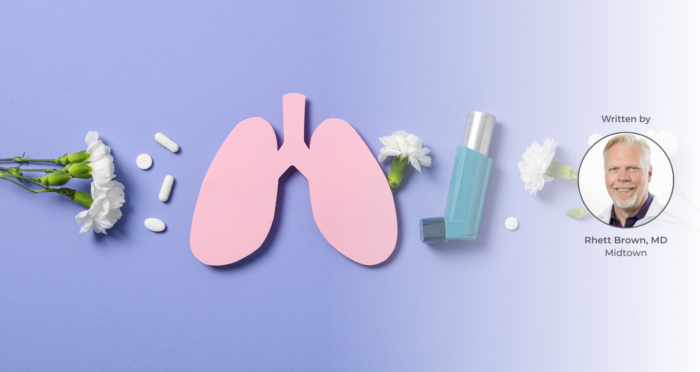As spring blossoms across North Carolina, so does the annual influx of pollen, triggering allergies for many residents. Whether you’re a native or a newcomer to North Carolina, understanding spring allergies is essential for maintaining your health and well-being. Let’s learn more about what allergies are, symptoms, treatment options, and when you need to see your doctor.
What Are Allergies?
Allergies are the immune system’s exaggerated response to substances known as allergens. In North Carolina, common allergens during spring include pollen from trees like oak, pine, and birch, as well as grasses and weeds. When these allergens enter the body, the immune system perceives them as threats, leading to the release of histamines and other chemicals that cause allergic reactions.
Signs and Symptoms of Spring Allergies
Recognizing the signs and symptoms of spring allergies is crucial for timely intervention. Common manifestations include:
- Sneezing: Frequent and repetitive sneezing is often one of the first signs of allergies as the body attempts to expel allergens.
- Nasal Congestion: A stuffy or runny nose is another hallmark symptom, making breathing difficult and causing discomfort.
- Itchy Eyes: Allergic conjunctivitis can lead to red, watery, and itchy eyes, often accompanied by swelling.
- Coughing and Wheezing: Allergies can irritate the airways, leading to coughing, wheezing, and even exacerbating underlying asthma.
- Fatigue and Irritability: Constant exposure to allergens can cause fatigue, irritability, and difficulty concentrating, impacting daily activities and productivity.
Treatment Options for Seasonal Allergies
Fortunately, numerous treatment options are available to alleviate the symptoms of spring allergies and improve your quality of life:
- Over-the-Counter Medications: Antihistamines, decongestants, and nasal corticosteroids can effectively relieve allergy symptoms and are readily available at pharmacies.
- Allergy Immunotherapy: For individuals seeking long-term relief, allergy testing and immunotherapy services offered by Avance Care can be highly beneficial. Immunotherapy involves gradually exposing the body to allergens, desensitizing the immune system, and reducing allergic reactions over time.
- Nasal Irrigation: Using a saline solution to rinse the nasal passages can help flush out allergens and ease congestion.
- Environmental Control: Minimizing exposure to allergens by keeping windows closed, using air purifiers, and avoiding outdoor activities during peak pollen times can mitigate symptoms.
- Prescription Medications: In severe cases, prescription-strength antihistamines, corticosteroids, or allergy shots may be recommended by healthcare professionals.
When to Consult a Medical Provider
While self-management strategies can provide relief for mild allergies, it’s essential to know when to seek medical assistance:
- Persistent Symptoms: If allergy symptoms persist despite over-the-counter medications or home remedies, consulting a primary care provider is advisable.
- Severe Reactions: Severe allergic reactions, such as difficulty breathing, swelling of the face or throat, or anaphylaxis, require immediate medical attention.
- Impaired Quality of Life: Allergies that significantly impact your daily activities, sleep, or mental well-being warrant a medical evaluation.
- Underlying Health Conditions: Individuals with asthma, chronic respiratory conditions, or compromised immune systems should seek guidance from a healthcare professional to manage allergies effectively.
As spring unfurls its beauty in North Carolina, so do the challenges posed by seasonal allergies. By understanding the nature of allergies, recognizing their signs and symptoms, exploring treatment options, and knowing when to seek medical assistance, you can navigate this allergy season with confidence and reclaim your vitality. Remember, Avance Care is your ally in the fight against allergies, offering personalized solutions to help you breathe easier and enjoy spring to the fullest.




